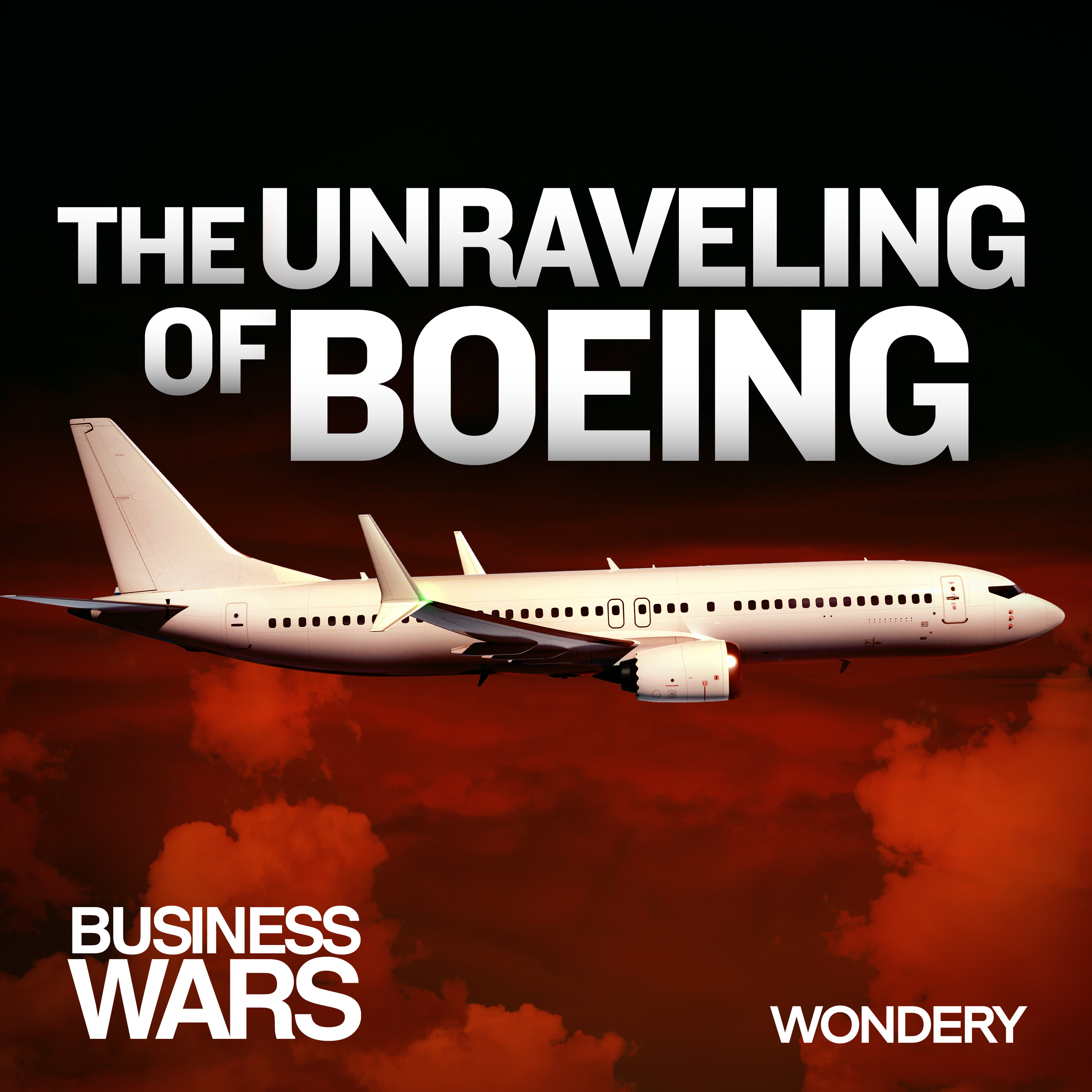
The Unraveling of Boeing | The Crash | 1

Business Wars
Deep Dive
What caused the Ethiopian Airlines Flight 302 crash in 2019?
The crash was caused by a malfunction in the MCAS (Maneuvering Characteristics Augmentation System) software on the Boeing 737 MAX. A failed sensor incorrectly indicated the plane's nose was too high, triggering MCAS to repeatedly force the nose down, leading to a fatal dive.
Why was the Boeing 737 MAX grounded globally after the Ethiopian Airlines crash?
The 737 MAX was grounded globally due to safety concerns after two fatal crashes within five months, both linked to the MCAS system. Regulators worldwide, starting with China and Indonesia, banned the aircraft from flying, leading to a cascade of groundings by 27 regulators.
What role did the FAA play in the Boeing 737 MAX crisis?
The FAA initially delayed grounding the 737 MAX, citing insufficient evidence. However, after data from the Ethiopian Airlines crash mirrored the Lion Air crash, the FAA issued an emergency order to ground the aircraft. The crisis exposed flaws in the FAA's oversight and its reliance on Boeing's self-regulation.
How did Boeing's CEO Dennis Muilenberg respond to the 737 MAX crisis?
Dennis Muilenberg apologized for the crashes and assured stakeholders that Boeing was working on a software update for MCAS. However, his testimony before Congress was heavily criticized, and he was eventually fired in December 2019 as Boeing's board sought new leadership to address the crisis.
What financial impact did the 737 MAX grounding have on Boeing?
The grounding cost Boeing nearly $5 billion, wiped $30 billion off its market valuation, and led to halted production of the 737 MAX. Airlines canceled flights, and Boeing faced scrutiny from regulators, lawmakers, and the public, severely damaging its reputation.
What were the findings of the Lion Air crash investigation?
The investigation concluded that the flawed design and certification of MCAS were key factors in the crash. Boeing was criticized for not informing pilots about MCAS and for the malfunctioning AOA Disagree Alert. The pilots and maintenance crew were also faulted for not following proper procedures.
How did Boeing's relationship with the FAA contribute to the 737 MAX crisis?
Boeing's close ties with the FAA allowed it to influence the certification process, leading to insufficient oversight of MCAS. The FAA delegated parts of the certification to Boeing, which critics argue contributed to the flawed design and certification of the system.
What was the public and shareholder reaction to Boeing's handling of the 737 MAX crisis?
Public outrage grew as families of crash victims protested and demanded accountability. Shareholders initially supported Boeing's leadership, rejecting a motion to remove Muilenberg as chairman. However, as the crisis deepened, confidence in Boeing's leadership eroded, leading to Muilenberg's eventual dismissal.
What changes did Boeing promise to make to the 737 MAX after the crashes?
Boeing pledged to update the MCAS software to prevent erroneous sensor readings from triggering the system. The company also promised to improve pilot training and ensure that similar accidents would not occur in the future.
What long-term challenges did Boeing face after the 737 MAX crisis?
Boeing faced significant challenges, including restoring public trust, addressing regulatory scrutiny, and competing with Airbus. The crisis tarnished Boeing's reputation for safety and quality, and the company struggled to recover financially and operationally.
Shownotes Transcript
It’s 2019 and after another deadly plane crash, Boeing finds its reputation and business in free fall. Its best-selling passenger jet, the 737 Max, is forced out of the skies and the company is forced to reckon with its mistakes.
Be the first to know about Wondery’s newest podcasts, curated recommendations, and more! Sign up now at https://wondery.fm/wonderynewsletter
Listen to Business Wars on the Wondery App or wherever you get your podcasts. Experience all episodes ad-free and be the first to binge the newest season. Unlock exclusive early access by joining Wondery+ in the Wondery App or on Apple Podcasts. Start your free trial today by visiting wondery.com/links/business-wars/ now.
See Privacy Policy at https://art19.com/privacy) and California Privacy Notice at https://art19.com/privacy#do-not-sell-my-info).